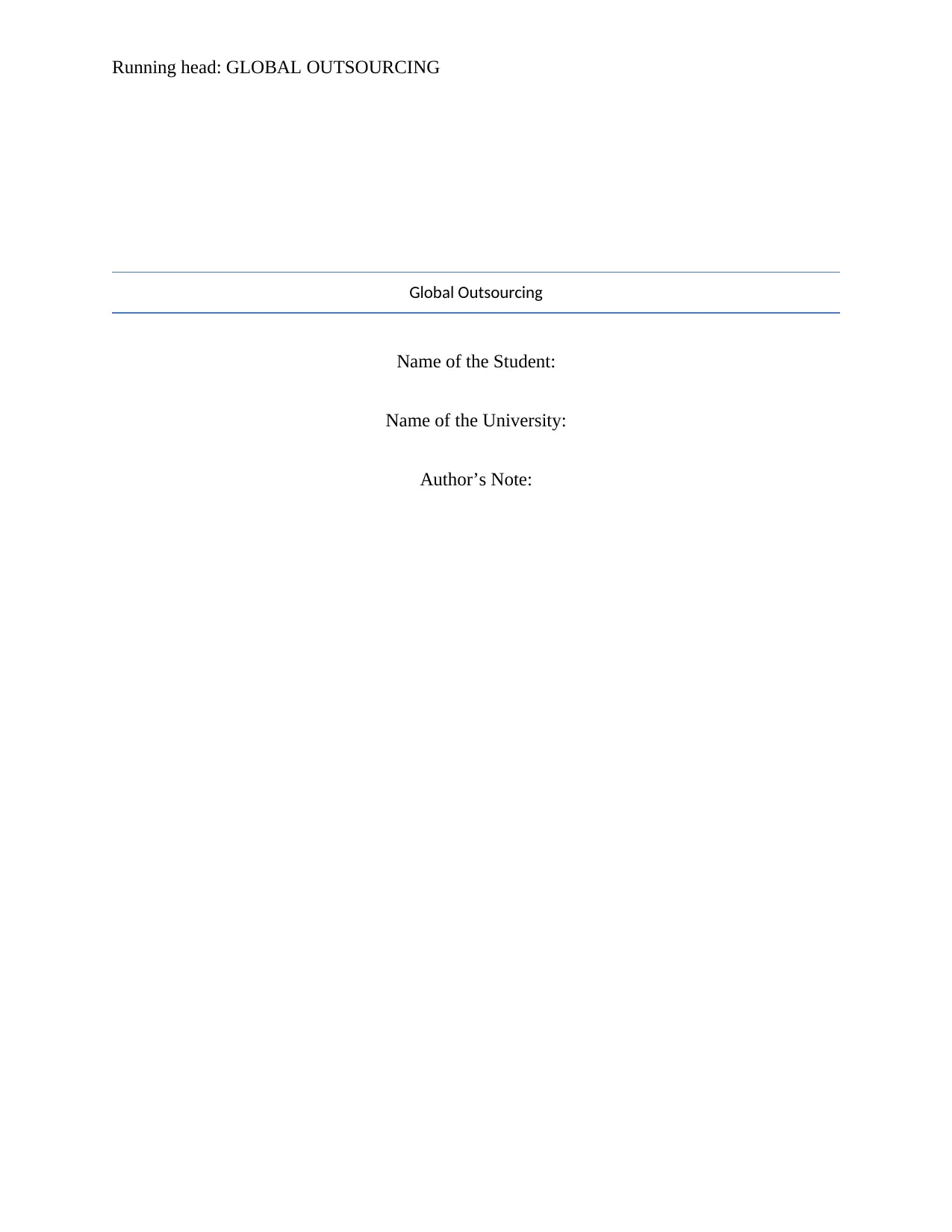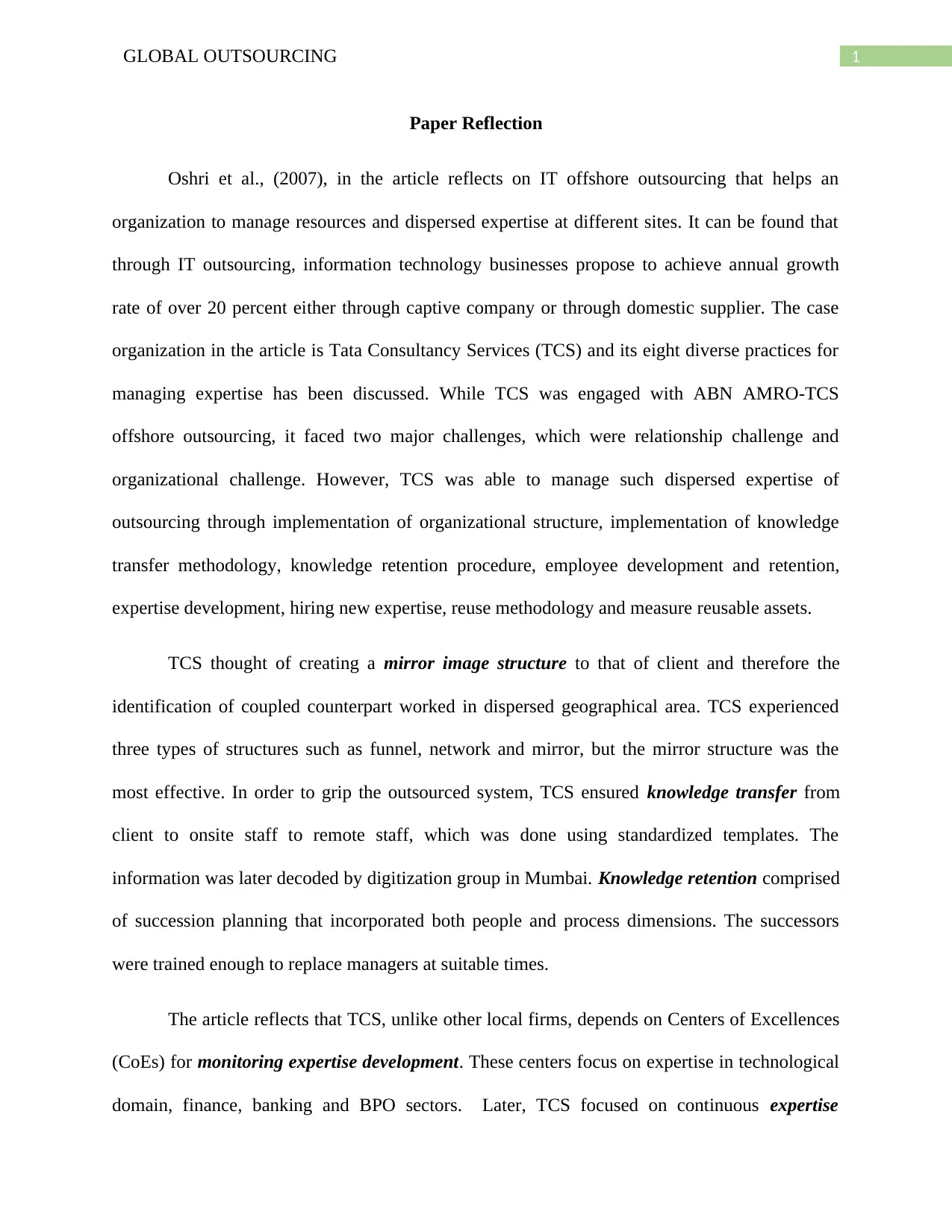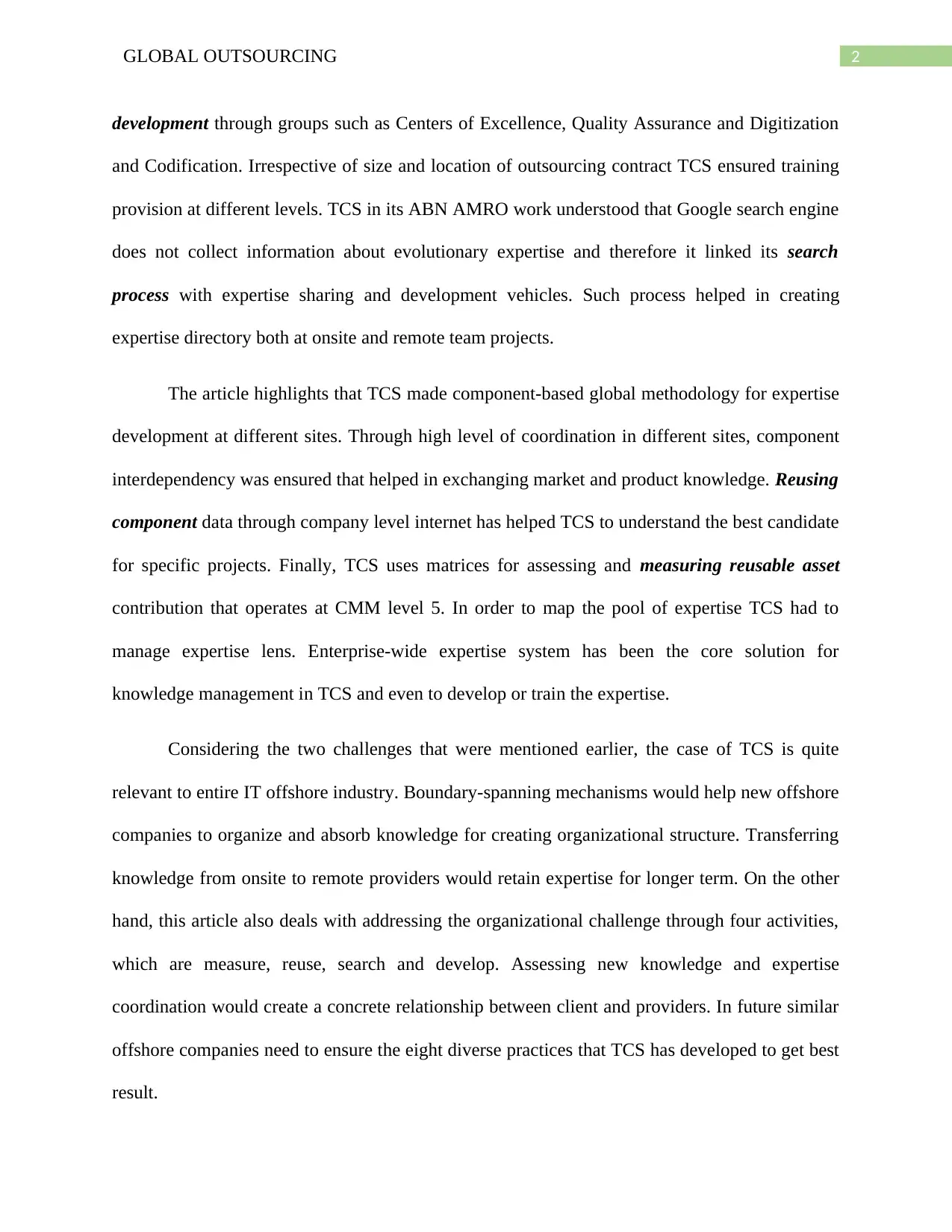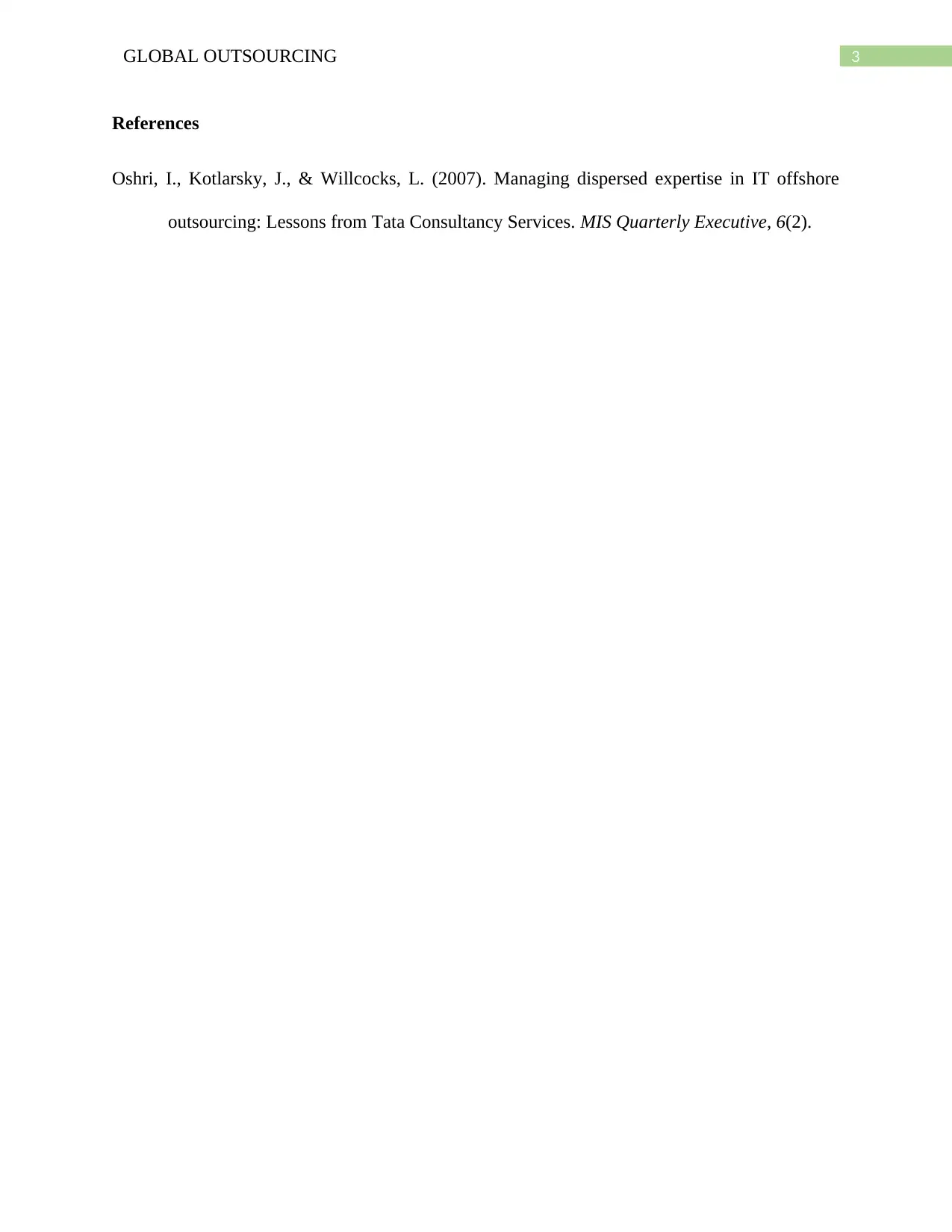Report: Strategies for Managing Expertise in Global Outsourcing at TCS
VerifiedAdded on 2020/05/08
|4
|697
|148
Report
AI Summary
This report analyzes the TCS outsourcing case study, focusing on the management of dispersed expertise in IT offshore outsourcing. The case study examines the challenges faced by TCS, including relationship and organizational issues, and how the company addressed them through various strategies. These strategies include implementing an organizational structure, knowledge transfer methodologies, knowledge retention procedures, employee development, expertise development, and the reuse of methodologies. The report details how TCS utilized a mirror image structure, knowledge transfer from client to onsite and remote staff, and Centers of Excellence to foster expertise development. Additionally, it highlights the importance of component-based global methodology, high-level coordination, and the use of matrices for assessing reusable assets. The report concludes by emphasizing the relevance of TCS's practices for other offshore companies, underscoring the importance of boundary-spanning mechanisms, knowledge transfer, and addressing organizational challenges through measure, reuse, search, and development initiatives. The report draws on the work of Oshri, Kotlarsky, and Willcocks (2007) in their analysis of TCS's approach.
1 out of 4





![[object Object]](/_next/static/media/star-bottom.7253800d.svg)